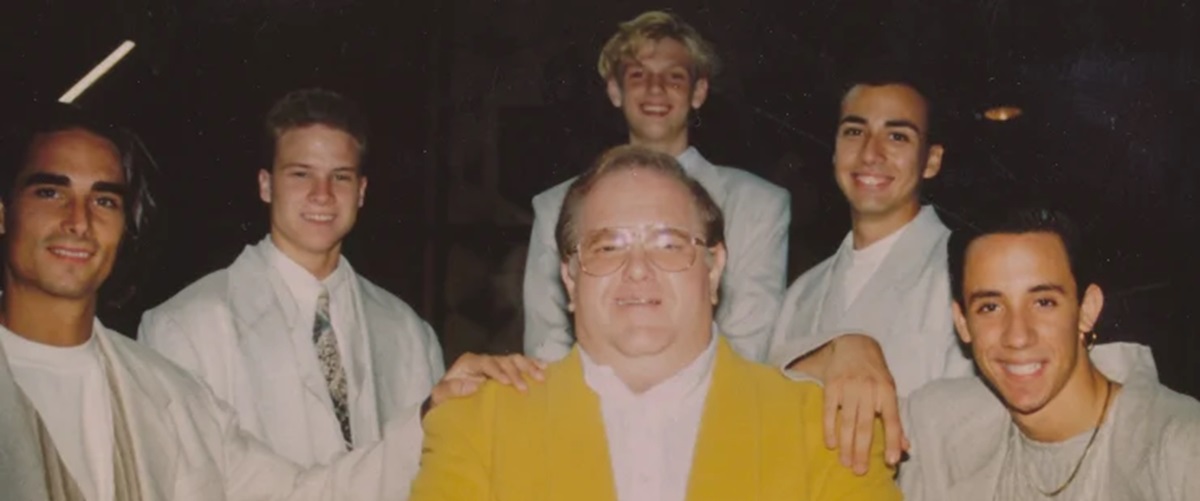Before we get too deep into the story of Lou Pearlman, a pop music kingmaker who built his empire on a Ponzi Scheme, something needs to be addressed about Netflix's three-part docuseries "Dirty Pop: The Boy Band Scam." As technology advances, there are going to be deeper and deeper questions about what's allowed in non-fiction filmmaking, and the creators of this series wade into what I would call some professionally murky waters. Pearlman himself died in 2016, but he published an autobiography titled Band, Brands, & Billions and the series uses passages from that book but puts them into the form of an A.I.-generated Pearlman, as if he's being interviewed or giving a sort of presentation about his life. While no one is here to defend Pearlman, the decision feels a bit wrong to me. Written words in a book are not the same as an interview. How do we know a word or two aren't missed in the translation? How do we know the emphasis on a certain word or idea is the right one? It feels like an incredibly slippery slope to turn books into something that looks like an interview.
Of course, morally gray areas are appropriate for the story of Lou Pearlman, a man who made pop stars in the ‘90s and ‘00s in a way that really changed music forever. The great revelation of "Dirty Pop" is that the whole thing was a scam as Pearlman was basically getting people to invest in these bands with little to no intent of ever getting them a return on their investments. Pearlman started his career selling blimps he didn't own to companies, transitioning to actual plane rentals through Trans Continental Airlines before he noticed the success of New Kids on the Block, and set about to recreate it on a massive scale. He basically created the best-selling boy band of all time in The Backstreet Boys, but that is just the tip of the pretty boy iceberg as Pearlman went on to manage and shape NSYNC, O-Town, LFO, Take 5, Natural, and many more.
It was all a scam, and "Dirty Pop" does a decent job of recounting the facts. The Backstreet Boys were the first to notice that they weren't really getting paid, filing a lawsuit against Pearlman. NSYNC followed suit, and the house of cards fell. As Pearlman scrambled to find the money he had mostly spent on other artists, people suffered. How much the people around Pearlman knew about his illegal and immoral wheelings and dealings is a bit of a gray area in "Dirty Pop." The series is surprisingly defensive at times of Pearlman and his legacy, perhaps indicative of how much people want to defend something they love like the music he helped create. If you're a Backstreet Boys or NSYNC fan, it can be hard to morally reconcile how something that brought you so much joy could have been so corrupt.
And yet "Dirty Pop" seems hesitant to dig into this complexity. The interviews with former boy banders are the highlight, but several of the big names are missing (including Justin Timberlake), giving the already-thin project a further sense that it's incomplete. By the time Pearlman was caught, his crimes were labeled the longest-running Ponzi scheme in history. He used companies that only existed on paper to get investments that he basically spent on himself or further projects to keep the scheme going. The intersection of business, greed, and pop culture is a fascinating place, but it's also perhaps too ethically complex for a flashy Netflix docuseries. How can something so beloved also be so painful to so many? Pearlman isn't here to really answer that question, and the series can't quite get there, even with their version of his own words.
Whole series screened for review. On Netflix on July 24th.



















